MercoPress. South Atlantic News Agency
Tag: Brazilean inflation
-
Thursday, October 10th 2013 - 00:57 UTC
Brazilian annual inflation to September the lowest in nine months
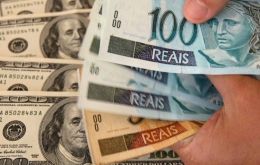
Annual inflation in Brazil reached its lowest level in nine months, but the country still shows signs it hasn't yet come to grips with persistently higher prices. Brazil's 12-month inflation reading continued to retreat, falling to 5.86% in September, the Brazilian Institute of Geography and Statistics, or IBGE, said Wednesday.
-
Wednesday, September 4th 2013 - 01:26 UTC
Brazil's inflation tendency again picks up as food and transport prices rebound
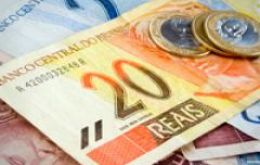
Brazil’s twelve-month inflation ended August at its lowest level this year, according to a central bank survey of fourteen economists. This means the 12-month IPCA consumer-price index is likely to weigh in at 6.10% for August, down from 6.27% at the end of July.
-
Tuesday, August 20th 2013 - 23:35 UTC
The sliding Brazilian currency has depreciated 18% in the last twelve months

The Brazilian currency Real, which is the region’s reference, is undergoing one of its major depreciations against the US dollar in the last four years because of the poor performance of its economy and the tendency is to continue, at least in the short term, given the uncertainty about US monetary policy.
-
Friday, August 16th 2013 - 03:04 UTC
Brazil's June economic activity picked up, but recovery remains fragile
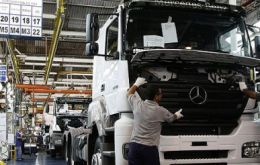
Brazil's economic activity grew at a slightly slower pace than expected in June despite strong industrial output, data showed on Thursday. The central bank's IBC-Br index climbed 1.13% in June from May in seasonally adjusted terms, up from a decline of 1.50% in the previous month.
-
Sunday, June 16th 2013 - 14:39 UTC
Booing down of President Rousseff reflects growing dissatisfaction with the economy
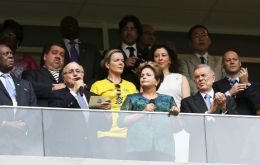
Inflation, slower growth, street protests over the increase in bus fares smacked full on at an ill-humoured Brazilian president Dilma Rousseff during the opening ceremony of the Confederations Cup in Brasilia when she was booed down three times and simply had to declare the event open.
-
Friday, May 31st 2013 - 07:15 UTC
Fearing high inflation Brazil raises basic rate 50 basic points to 8%
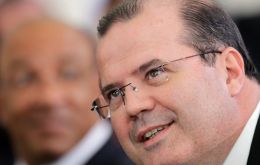
Brazil's central bank raised its benchmark interest rate on Wednesday to 8% from 7.5%, as part of an effort to battle high inflation in an economy that keeps struggling with slow growth.
-
Wednesday, May 8th 2013 - 16:57 UTC
Brazilian inflation during April just managed to keep to the government’s target
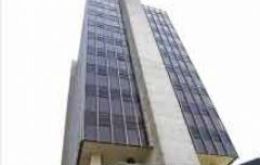
Inflation in Brazil during April climbed 0.55% over March (0.47%) and accumulated 6.49% in the last twelve months which is just below the government’s upper limit target of 4.5% to 6.5%, according to the latest release from the country’s Geography and Statistics National Institute, IBGE.
-
Thursday, March 7th 2013 - 06:39 UTC
Brazil basic rate unchanged at record low 7.25%, but inflation could reverse policy
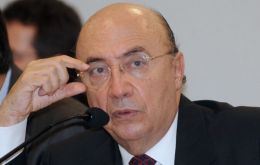
Brazil’s central bank on Wednesday kept its benchmark rate at a record low 7.25% for the third straight meeting as policy makers seek to prop the anaemic economy which last year only advanced 0.9%.
-
Thursday, February 28th 2013 - 06:07 UTC
President Rousseff pledges to cut “Brazil cost” and keeping inflation in check

President Dilma Rousseff said on Wednesday that Brazil must cut its high business costs to become more competitive and vowed to keep inflation in check. The leader anticipated that 2013 will be a year of major infrastructure investments in roads, railways, ports and airports to try to stop bottlenecks from holding the economy back.
-
Saturday, January 12th 2013 - 11:57 UTC
Inflation under control says Brazil, but investors not entirety convinced
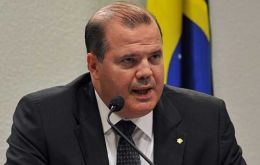
Brazilian consumer prices ended 2012 near the top of the central bank's target range for the third year running, prompting concern from economists that the country is stuck in a phase of low growth and high inflation.
